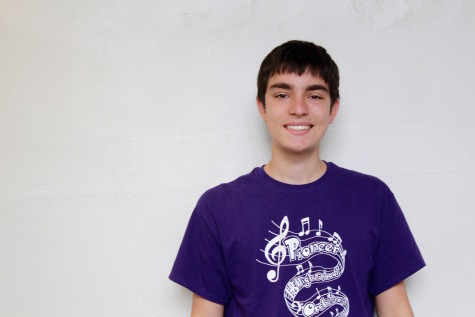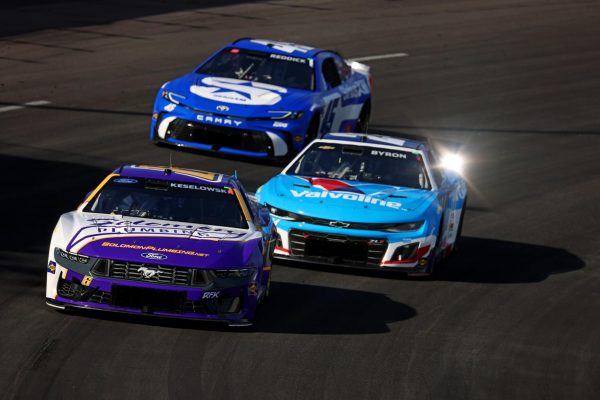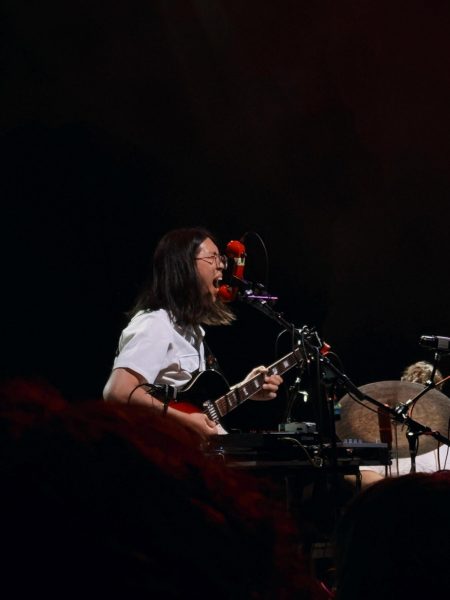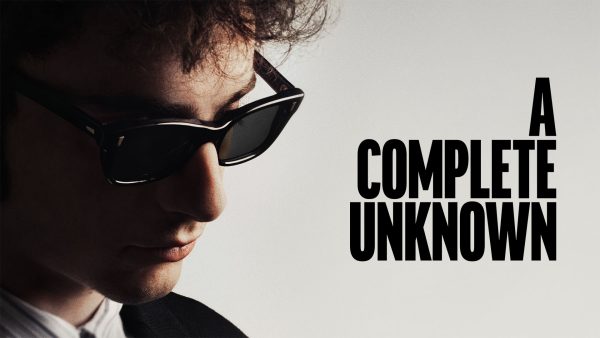AAPS Orchestras Perform at Hill Auditorium
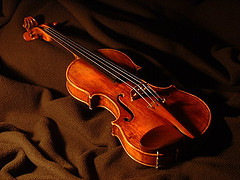
The Pioneer High School Symphony Orchestra had been working on Igor Stravinsky’s Firebird Suite since the fall, but they were not relaxed.
“I think we have the potential to do really well, and also the potential to do not as well as we should,” commented Allegra Corwin-Renner, a Community High School senior and cellist in Pioneer Symphony Orchestra, before the performance.
“It was a little stressful,” added CHS sophomore Max Meza, a bassist.
They knew, however, that their months of preparation meant that they were as ready as they could be for the performance.
“I don’t think [not doing well] will happen,” Corwin-Renner said. “I think we’ll do well.”
Two movements of Firebird later, the packed audience of Hill Auditorium rose to their feet, recognizing not only the Pioneer orchestra, but each and every high school and middle school orchestra that performed, and another successful year of Orchestra Night.
The 2014 annual Ann Arbor Public Schools’ Orchestra Night took place at Hill Auditorium on February 13. Five seventh and eighth grade orchestras representing all six middle schools — Forsythe and Ann Arbor Open together, Slauson, Clague, Scarlett, and Tappan — took the stage in turn. They were succeeded by the Symphony Orchestras (the highest level of the AAPS orchestra program) of Huron, Skyline, and Pioneer High Schools. Orchestra Night gives the musicians all over Ann Arbor a chance to show what they have been working on, and to listen to the orchestras of other schools as well.
Pioneer Symphony Orchestra (PSO) began working on Firebird before the first quarter was over, and performed it for their concert in December 2013. Nonetheless, the taxing piece required high amounts of preparation. As one of the bass section leaders, Meza experienced stress from the need to prepare himself and others in his section, as well. “The hardest thing about performing Firebird was the leadership. As co-principal … I had to really pay attention, give strong cues, and stick to bowings like crazy.”
However, Meza thought that Conductor Jonathan Glawe left PSO well-prepared. “Both times I’ve played in orchestra night in high school, Glawe has gone overboard with preparation,” he said. “I love it. Guest conductors, clinicians, extra rehearsals, you name it. He’s amazing. Middle school just didn’t have that energy.”
According to a Huron student, Huron Symphony Orchestra’s (HSO) preparation for their equally difficult piece — Gustav Mahler’s Symphony No. 2 — also required many strenuous methods. “Preparation for any major performance is very intense,” observed Jane Burks.* “Long hours are spent learning bowing and fingerings even before we put all the instruments together. Ideally, everyone would be prepared for rehearsal but this isn’t always the case, which can be stressful later on in the rehearsal process. Playing tests are always terrifying, but are effective in getting everyone on the same page. Also, particularly as the performance approaches, being solid on the toughest spots helps build confidence as an ensemble.”
Both students felt that, in the end, the preparation paid off, even if they did not think their performances were spotless. “This year, I think it went pretty darn well. We played with feeling, which is the important part,” said Meza, who has performed in three Orchestra Nights. He observed, “There were still rough parts about our piece,” but added that “Firebird Suite is chaotic, and I feel that as a school orchestra, we did everything we could.”
Similarly, Burke was pleased with HSO’s interpretation of Mahler despite observing a few imperfections. “The performance itself was not our best; we had a few troublesome spots,” she said. “But overall, to have the opportunity to play in such an amazing venue was really a treat. Our piece was filled with emotion and to have all our work pay off was thrilling. There were certain moments when I could hear the sound booming back at us and others when I could barely hear my stand partner. To be able to achieve this contrast was invigorating. I think our weakest point was stylistic transitions and if we spent more time in that area, it could have brought our performance to the next level.”
Ultimately, all orchestras drew high praise. “Huron did Mahler 2 justice,” said Meza. “It’s one of my favorite pieces, and they sounded awesome performing it. Their brass, especially.” Several Pioneer Concert Orchestra (the middle-level orchestra) students reported being motivated by the symphony orchestras enough to practice harder so they could become a member of a symphony orchestra the next year. This praise was not limited to the high school orchestras: “The middle schools completely blew me away. I wasn’t expecting them to totally rock what they played, but they definitely did,” Meza added.
Orchestra Night is seen as an important event for the orchestras, for numerous reasons. Meza senses a slightly more competitive view of the night. “Orchestra night is a concert where you have direct comparison to other schools, and the administration is there. That means that we really have to prove that we’re the best, and that we deserve money,” he explained.
Nonetheless, orchestra students see Orchestra Night as an enjoyable event that contrasts with the rest of their performances. They see more value in the experience than its potential consequences. “Orchestra night is a really important night for me as a player, but also [for] our orchestra,” she said. We get to connect with our community and share our love of music. We also get to inspire the younger kids and reminisce about our middle school days.”
“Most performances throughout the year have one mood with one conductor and similar orchestra styles,” added Burke. “Generally, concerts are based off the idea of presenting your piece for the purpose of entertainment, while Orchestra Night is more for the purpose of sharing and relating to one another. Seeing all these different ensembles at one event sends off a really cool communal vibe that brings everyone closer together.”
Corwin-Renner agreed. “I feel like for Orchestra Night, people have orchestra spirit,” she said. “We come together a lot. It’s a different atmosphere.”
*Name has been changed to protect anonymity.
